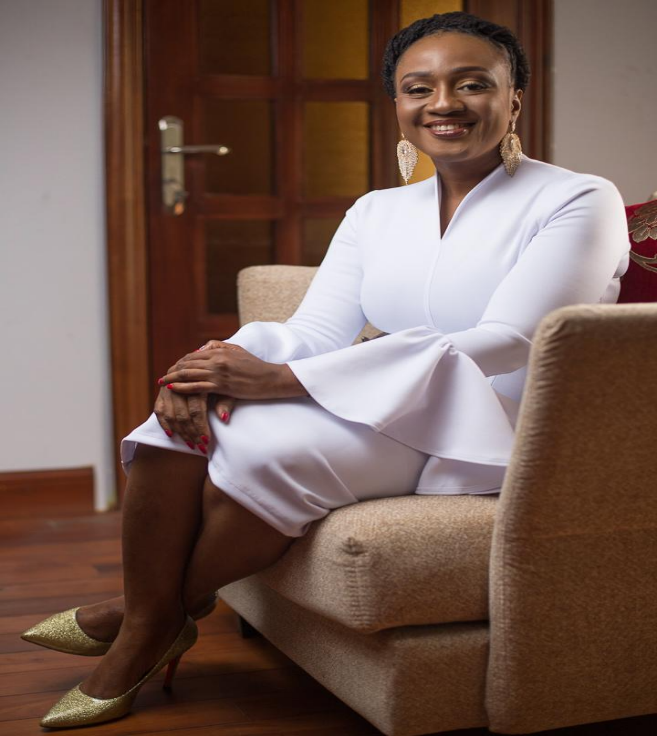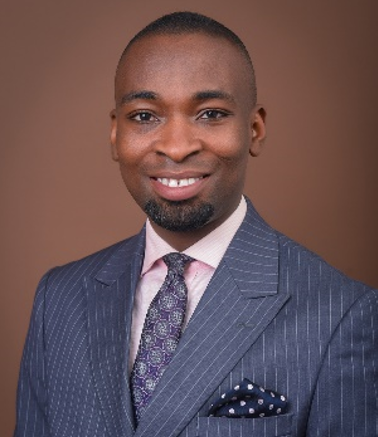Insights with Dzigbordi Kwaku-Dosoo: Redefining leadership in Africa: The bold shift we need now
By Francis
Copyright thebftonline

Africa stands on the brink of a seismic shift, with the world watching to see if it will step boldly into the future. The answer hinges on the type of leadership embraced; a move away from the traditional, transactional style rooted in positional authority and short-term gains that has long defined the continent.
This era demands a far greater, more visionary form of leadership that can chart new frontiers, inspire trust, and galvanize collective action to transform systems and societies. In conference rooms from Accra to Lagos to Nairobi, this need is made clearer by the unprecedented diversity now present in African workplaces, spanning multiple generations, cultures, and values.
While recent African Development Bank findings show that 68% of fast-growing enterprises have teams spanning at least three generations, only 26% report managing that diversity effectively. This is the central paradox: diversity has become Africa’s greatest advantage, yet only bold, intentional leadership can transform it into lasting performance and drive true transformation.
As leaders, we stand at a truly historic inflection point. Africa is home to the world’s youngest workforce, a demographic boon that brings fresh perspectives, digital fluency, and an unparalleled drive for innovation.
This new generation of talent is converging with the expertise and vital institutional memory of older, more experienced professionals. This unique blend of youth and wisdom has the potential to ignite extraordinary innovation and redefine what’s possible for our organizations and the continent as a whole.
However, this same convergence can also be a source of significant challenges. Without thoughtful leadership, the generational and cultural differences can lead to friction, misalignment, and disengagement. The way a leader handles these dynamics in their first crucial days and months can either build a foundation for remarkable success or sow the seeds of a fractured team.
The Urgency of Inclusive Leadership
At DCG Consulting Group, our work across various sectors consistently reveals a clear pattern: managers who successfully navigate this complexity in their first 30 days consistently achieve higher team engagement and significantly lower turnover rates. This isn’t just an observation; it’s a proven strategy.
Research from the University of Cape Town echoes this finding, showing that leaders who proactively set inclusive team dynamics early on see a remarkable 43% higher engagement scores within the first year. This demonstrates that a leader’s initial actions have a powerful, long-lasting ripple effect on team performance and cohesion.
The core of this success lies in moving beyond traditional management styles. Simply delegating tasks or enforcing rules isn’t enough to harness the full potential of a multigenerational, multicultural team. A transactional approach, focused on short-term gains and positional authority, is no longer sufficient.
The New Imperative of Leadership Transformation
Thriving in this new African landscape requires a fundamental shift in mindset. It demands bold leadership transformation the kind that reimagines what it truly means to lead. This is about more than just managing people; it’s about fostering an environment where every individual, regardless of their background or age, feels valued, understood, and empowered to contribute their best work.
True leadership today is about bridging divides, championing empathy, and building a culture of psychological safety where open communication and mutual respect can flourish. It requires a leader who can listen more than they speak, who understands that different generations are motivated by different things, and who can act as a unifying force. By embracing this new model, we can turn what could be a source of conflict into our greatest competitive advantage and lead Africa into a future defined by collaboration and unprecedented growth.
To make this bold shift, leaders must embrace a new playbook. This isn’t about minor adjustments; it’s about fundamentally redefining what it means to lead in Africa.
To begin, go beyond the textbook with focus on human-centered mapping. The first step is to move past theory and into practice. As a leader, your immediate task is to understand the human landscape of your team. I learned this firsthand while advising a pan-African financial firm. The CEO struggled to unite five generations across eight regional offices. We didn’t start with a complex organizational survey. Instead, we held one-on-one “listening tours,” asking simple questions like, “What motivates you?” and “How do you define respect?” We uncovered deep misalignments that a standard report would have missed. As a Ghanaian, I value the proverb, “If you want to know the road ahead, ask those coming back.” Your team already holds the answers; your job is to listen and chart the course together.
Additionally, master the language of inclusivity. In our diverse context, communication is not just about clarity; it’s about inclusivity. Leaders must become fluent in the “languages” of their team, which are often different from their own. This means being able to speak the digital language of Gen Z while also honoring the face-to-face, relationship-based communication preferred by older generations. You must proactively establish a “communication charter” with your team: a shared agreement on how you will give feedback, run meetings, and resolve conflict. This intentionality is what turns potential friction into seamless collaboration.
Also, build bridges of trust. Trust is the currency of leadership, and in Africa, it is earned through relationships, not just titles. A bold leader understands that trust-building mechanisms vary across cultures and generations. Younger professionals value transparency and shared purpose, while older generations often prioritize respect for wisdom and demonstrated competence. A leader must intentionally create space for both. The most successful teams create both social opportunities for connection and structured moments to showcase individual expertise. This dual approach builds a foundation of respect that allows for open dialogue and innovation.
In concluding, design for breakthrough innovation. It’s not enough to simply have a diverse team; a bold leader must actively design an environment for diverse-led innovation. This means creating systems that ensure every voice is heard and valued. We call this “perspective rotation with cultural context.” For example, you can systematically have team members from different backgrounds lead discussions on specific topics. This ensures a constant flow of fresh ideas and challenges the status quo in a respectful, productive way. This approach, which draws on both global best practices and indigenous African knowledge, is what turns a diverse group of people into a unified breakthrough engine.
The bold shift we need now is a move from managing people to mobilizing hearts and minds. It is a shift from positional authority to earned influence. Those who make this move will not only lead their teams to unprecedented success but will also be the architects of a new, more prosperous future for Africa.
Speak To Sell – R.I.S.E Framework Online Course
Transformation hinges on effective communication, and many leaders stumble not because they lack vision, but because they struggle to articulate it in a way that resonates across diverse cultures, generations, and platforms.
That is precisely why we developed the Speak to Sell Framework, our signature online course designed for African executives, emerging leaders, and entrepreneurs. It provides the tools to craft compelling strategic narratives, communicate with authority and authenticity, and move diverse audiences from passive listeners to active champions.
In a continent as dynamic as ours, the ability to speak with clarity and conviction is no longer optional, it is a critical competitive advantage. Africa’s future will be shaped by leaders who don’t just manage teams, but ignite them. Those who see diversity not as a challenge, but as a force to unleash for shared purpose.
If you are ready to make that shift, start by asking yourself one bold question: “How can I lead in a way that unites differences into shared purpose?” Answer it with vision, communicate with power, and remember: the first 30 days set the tone for your legacy.
Let’s build Africa’s future together, one bold leader at a time. Enroll today in the Speak To Sell – R.I.S.E Framework Online Course via this link [https://dzigbordi.com/speak-to-sell/] and begin your transformation.
Are you ready for TRANSFORMATION?
Dzigbordi Kwaku-Dosoo is a Ghanaian multi-disciplinary Business Leader, Entrepreneur, Consultant, Certified High-Performance Coach (CHPC™) and global Speaker. She is the Founder and CEO of The DCG Consulting Group. She is the trusted coach to top executives, managers, teams, and entrepreneurs helping them reach their highest level of performance through the integration of technical skills with human (soft)skills for personal development and professional growth, a recipe for success she has perfected over the years. Her coaching, seminars and training has helped many organizations and individuals to transform their image and impact, elevate their engagement and establish networks leading to improved and inspired teams, growth and productivity.



